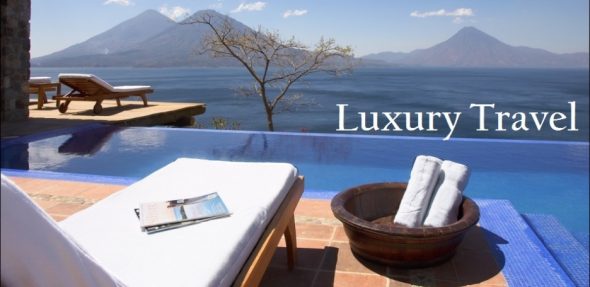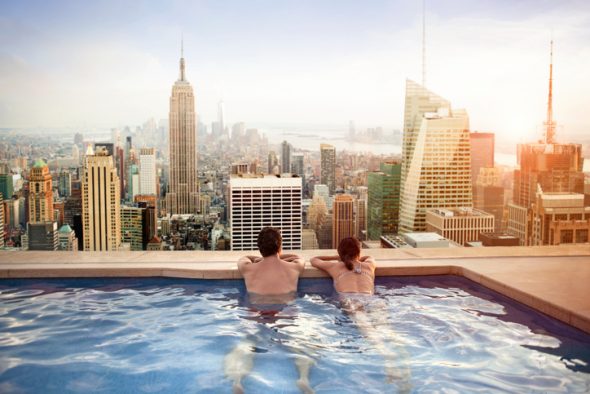This may not seem like a reasonable question, yet hundreds of executives and key decision makers from firms in the luxury market recently gathered at the Time Warner Center on Columbus Circle in New York City to discuss the possibility. The conference: Luxury First Look 2018: Exclusivity Redefined explored a range of topics including advertising, marketing, retail, media, Internet, social, mobile and geopolitics, and came up with these eight big myths swirling around the luxury sector.
Myth: “Luxury is dying, and hard goods are in a state of a downward spiral.”
Reality: Contrary to the apocalyptic view that Amazon is coming for everyone and will soon be the death of all retail, the number of potential luxury buyers is on the rise as booming stock and real estate markets are minting new millionaires and billionaires every day. Who is willing to buy, the value of the purchase, and where they’re looking to buy, are becoming as important as what they’re willing to buy. Brands are adapting to that reality.
Myth: “The idea of delivering a customer experience is limited to travel, food, and wine.”
Reality: There is an experience associated with every aspect of luxury. The trick is to find it in whatever product or service that you’re providing. In many cases, the core product or service itself is not what customers are really buying, rather they seek the entire process of being made to feel special, and to indulge in storytelling, superior quality and enriching human interaction before, during, and after the purchase.

Myth: “Digital commerce is the answer to everything.”
Reality: Marketers need to use a variety of engagement platforms to deliver a compelling product or service that’s truly unique. The user experience and the way to engage customers still requires a physical presence with stores and people, even as digital commerce continues to grab an increasing share of total sales. Reaching a customer and providing an optimal experience at a time and place of their choice will be crucial.
Myth: “Millennials only consume experiences, not products.”
Reality: What is true is that millennials are happy to buy products, but younger luxury consumers appreciate brands and products that reflect their beliefs, and their beliefs are brought to life through emotions and experiences. Retailers adapting successfully to the tastes of millennials sell plenty of products, but they make the experience central. One example is Porsche, which offers the opportunity to drive cars on a test track, improve skills, and track your performance while joining communities of like-minded peers across the globe. While the consumers pay for the car, they do so because of the associated experiences.

Myth: “People don’t want to visit the brick-and-mortar store.”
Reality: While it is certainly true that consumers appreciate the availability of online shopping, they also want to interact with human beings in a physical store where they can touch, try on, and take home their purchases. For certain product categories like automobiles, apparel, and jewelry, the physical store remains an integral centerpiece for shopping and purchasing.
Myth: “The internet will destroy the retail industry, and people are becoming obsolete.”
Reality: While many stores have closed, many luxury brands and luxury start-ups are developing more and more free-standing stores, and opening more stores in general. Even companies that started out internet-only, like Bonobos (now a Wal-Mart subsidiary) and Amazon itself are venturing into physical stores. Regardless of channel, the challenge is how to create a compelling, consistent and positive customer experience, and e-commerce is no panacea. Like operating a store, digital selling comes with significant costs and challenges of its own, including technology investments and upgrades, data centers, customer support, logistics, free shipping and high returns.
Myth: “There is no ceiling on luxury pricing.”
Reality: Affluent shoppers are willing to pay for value, but their wealth does not make them ignorant of pricing. There is a personal price-value equation that consumers will use if they feel that the price of an item in any category is too expensive. That personal price-value equation is different for every consumer and not always the same across categories. Furthermore, many wealthy consumers are in the process of decluttering, and not keen to collect additional possessions unless they provide exceptional value in some way. Only an optimal value proposition will earn their loyalty.
Myth: “Millennials are the lifeblood of the luxury business because they are the most numerous generation, and they are active shoppers.”
Reality: The millennials won’t become true players in luxury for quite some time. Low-paying jobs and staggering levels of student debt will subdue their spending power for years to come for most. Millennials also marry later in life, which correlates with lower levels of wealth accumulation and moderate spending habits. By the time millennials do come into money, the landscape will have changed. The oldest of millennials also realize they have to save money for the future. Older customers are still the bedrock of luxury and luxury brands need to act accordingly. Target individuals, not segments.

So how to appeal to the affluent consumer? Experts say customer service.
On the front lines of luxury, sales professionals stand as brand ambassadors for firms from dozens of industries, including automobiles, travel, fashion, jewelry, watches, financial services, and more.
Because of the high visibility of these workers and their central role in generating revenue, companies across the luxury spectrum are redoubling their efforts to acquire, train, develop, and retain the right kind of talent.
Based on the opinions of the people who do business with luxury firms, it’s impossible to understate the importance of customer interaction.
Half of affluent consumers agree that luxury brand sales professionals deliver a personalized and relationship-oriented experience.
A majority (53%) of affluent consumers say that superior customer service is an essential characteristic of a luxury brand, second in popularity only to superior quality (67%) as a core element of luxury.
What’s more, superior customer service and lifetime product guarantees are the most important influences on luxury purchase decisions, both cited by 44% of respondents worldwide.
Regarding the required attributes of luxury sales professionals, behaving in a polite and courteous manner (57%) is the most widely cited among affluent consumers, followed closely by product expertise (55%) and trustworthiness (49%). Unfortunately for high-end firms, consumers worldwide say that recent trends are for the worse on these three fronts.
Additional essential characteristics of luxury sales professionals are experience (46%), a professional demeanor (45%), and reliability (43%). Jewelry and watches (42%), and leisure travel and hospitality (37%) are most frequently cited as industries in which the best luxury sales professionals can be found.
“Luxury firms today are trying all they can to drive top-line growth, including adapting elements of artificial intelligence into their sales process, but ironically it’s the application of new technology that makes the front-line human element even more critical,” says Luxury Institute CEO Milton Pedraza. “The replacement of robotic work underscores a rapidly emerging need for a humanistic, enlightened, high-performance worker.”
For a look at full reporting, visit: www.luxurydaily.com
































































































































































































































































































Get Social